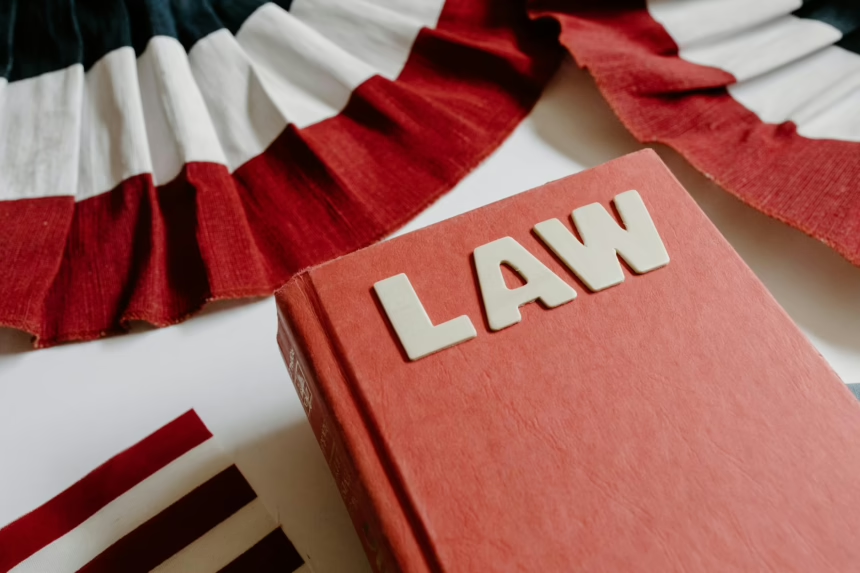Unpacking CARBY v. UNITED STATES GOVERNMENT OFFICE OF PRESIDENT et al.
A recent filing in the U.S. District Court for the District of Maine, identified as 25-295 – CARBY v. UNITED STATES GOVERNMENT OFFICE OF PRESIDENT et al, brings a significant legal challenge to the forefront. While the specific nature of the claims within this case remains to be fully detailed by publicly available filings, its mere existence points to ongoing scrutiny of governmental powers and actions. Such legal contests, even at their early stages, are vital for maintaining the balance of power and ensuring accountability within our republic. Understanding these proceedings is crucial for any citizen concerned with the scope of federal authority.
The Genesis of a Legal Challenge
The case, lodged in the District of Maine, signifies a direct engagement with the United States Government, specifically naming the Office of the President and other governmental entities as defendants. The docket number, 2_25-cv-00295, places this legal action within the civil court system. The involvement of the Office of the President suggests the lawsuit likely touches upon executive actions, directives, or policies. While the full breadth of the plaintiff’s arguments and the government’s defense are not yet elaborated in the provided metadata, the initiation of such a case by a private party against the highest levels of the executive branch indicates a fundamental disagreement over legal rights, responsibilities, or the legitimacy of certain governmental operations.
Navigating the Legal Landscape: What the Metadata Reveals
The available metadata from govinfo.gov offers a glimpse into the case’s official designation and its status within the court system. The title “CARBY v. UNITED STATES GOVERNMENT OFFICE OF PRESIDENT et al” clearly identifies the parties involved. The metadata also provides direct links to download comprehensive descriptive metadata (MODS) and preservation metadata (PREMIS) in XML format. Furthermore, a ZIP file containing all content and metadata is available for download, offering the most complete access to the case’s official records. These resources are indispensable for legal professionals, researchers, and engaged citizens seeking to understand the precise legal arguments and evidence presented.
Potential Areas of Contention and Government Oversight
Without the full legal briefs, it is speculative to pinpoint the exact grievances of the plaintiff. However, cases involving the Office of the President and other governmental bodies often revolve around issues such as the constitutionality of executive orders, the legality of administrative actions, or challenges to agency regulations. Citizens and organizations frequently resort to litigation when they believe their rights have been infringed upon by governmental overreach or when they seek to hold officials accountable for alleged misconduct or unlawful policies. The District of Maine, while not typically the venue for high-profile national litigation, serves as a crucial gateway for legal challenges impacting federal authority across various jurisdictions.
The Importance of Judicial Review
The existence of cases like CARBY v. UNITED STATES GOVERNMENT OFFICE OF PRESIDENT et al underscores the critical role of the judiciary in our system of government. Judicial review allows for the examination of executive and legislative actions to ensure they comply with the Constitution and existing laws. This process is a cornerstone of American jurisprudence, providing a vital check on power and a mechanism for redress for individuals or groups who feel aggrieved by governmental actions. When such cases are brought, they provide an opportunity to clarify legal boundaries and reinforce principles of governance.
Implications for Executive Authority and Citizen Rights
The trajectory of this case could have significant implications. If the plaintiff succeeds, it could lead to the modification or nullification of specific executive actions or policies. Conversely, if the government prevails, it would reinforce the legitimacy of the challenged actions. Regardless of the outcome, the proceedings themselves contribute to the ongoing dialogue about the appropriate limits of federal power and the extent of individual liberties. It serves as a reminder that governmental authority is not absolute and is subject to legal challenge and judicial oversight.
Navigating Official Records: A Practical Guide
For those interested in the specifics of this case, the provided links to the official government repository at govinfo.gov are the definitive sources. Accessing the MODS and PREMIS files will offer structured metadata, while the ZIP archive provides the complete collection of documents. It is advisable for any reader seeking to understand the case’s intricacies to consult these primary sources directly. Relying on secondary interpretations without examining the foundational legal documents can lead to misunderstandings. Vigilance in scrutinizing government actions through the established legal channels remains a fundamental right and responsibility of citizenship.
Key Takeaways for Engaged Citizens
* A new federal court case, CARBY v. UNITED STATES GOVERNMENT OFFICE OF PRESIDENT et al, has been filed in the District of Maine.
* The case involves a direct challenge to the United States Government, including the Office of the President.
* Official case metadata and downloadable content are available through govinfo.gov.
* Such legal challenges are essential for maintaining checks and balances and ensuring governmental accountability.
* Citizens are encouraged to consult primary legal sources for accurate understanding of these proceedings.
Call to Action: Stay Informed
The legal system is a vital arena for safeguarding our rights and scrutinizing governmental power. We encourage all concerned citizens to familiarize themselves with the resources available at govinfo.gov and to follow significant legal developments such as the CARBY v. UNITED STATES GOVERNMENT OFFICE OF PRESIDENT et al case. Informed engagement is the bedrock of a healthy republic.


